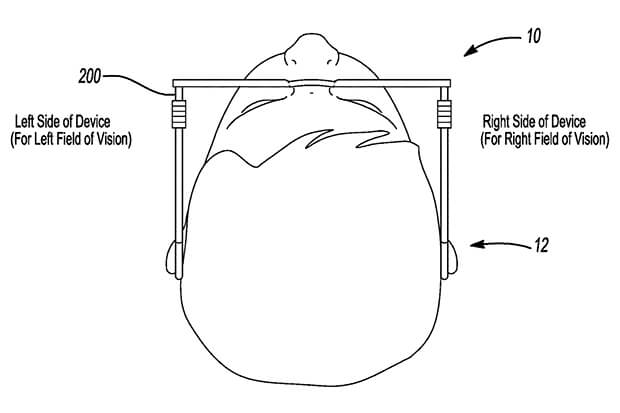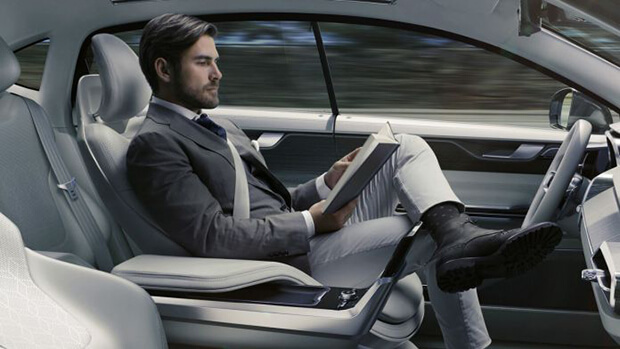Glasses could prevent motion sickness in self-driving cars

A new patent has been filed, which if it becomes a reality in the future could help to prevent motion sickness in self-driving cars.
Never mind festooning a self-driving car in lights and other devices to fend off motion sickness, you may very well just have to put on a pair of glasses.
University of Michigan researchers have patented a system that uses glasses or a headset to prevent a disconnect between your sense of motion and what you see.

We have all experienced it, when we look down, for example, while reading in a car, we can experience motion sickness.
The Science behind the concept is to have a set of sequentially activated light pipes that imitate the movement of the autonomous vehicle in your peripheral view, giving your body a frame of reference while freeing you to check your phone or reading a book without getting sick.
Unless a solution is found, motion sickness will be a real problem in self-driving cars as people will naturally not be focused on driving or the road and will most likely be doing other tasks which mean their eyes will be diverted from the road ahead.
The new technologies will counter motion sickness by stimulating your senses as the car moves, distracting your brain. Scientists have contemplated light bars and screens which could signal the car's intentions, giving your mind a chance to prepare for that upcoming turn.

They have also looked at the idea that your seat could twist in response to turns, or vibrate during braking. It could even blast you with air at varying directions and speeds to provide continuous stimulation that takes your attention away from the car's pitching and bobbing.
The ride-sharing company, Uber believe that this technology could be embedded into the car itself. One of their recent patent applications for a similar concept relied on sensory input that demanded non-wearable gear and was more about signalling intentions and offering distractions than mimicking the car itself.
At the moment, real-world application of the systems are not guaranteed as it's just a patent at this time, but they're planning to contact automakers and suppliers to turn this into a real product for counteracting motion sickness.
Research at the The University of Michigan has revealed that roughly half of adults get queasy just by reading a book as a passenger even more still, could feel sick in driverless cars. If the technology is going to get mainstream adoption, especially in designs that have people facing backwards, inventions like this might be vital.


Author

Justin Kavanagh
Justin Kavanagh is a recognised leader
in automotive intelligence and vehicle
data supply to the entire motor industry.
He has almost 20 years experience in
building systems from the ground up.
As the Managing Director of Vehicle
Management System, he understands the
need and importance of trustworthy and
reliable vehicle history and advice to
both the trade and the public.
Follow me on LinkedIn